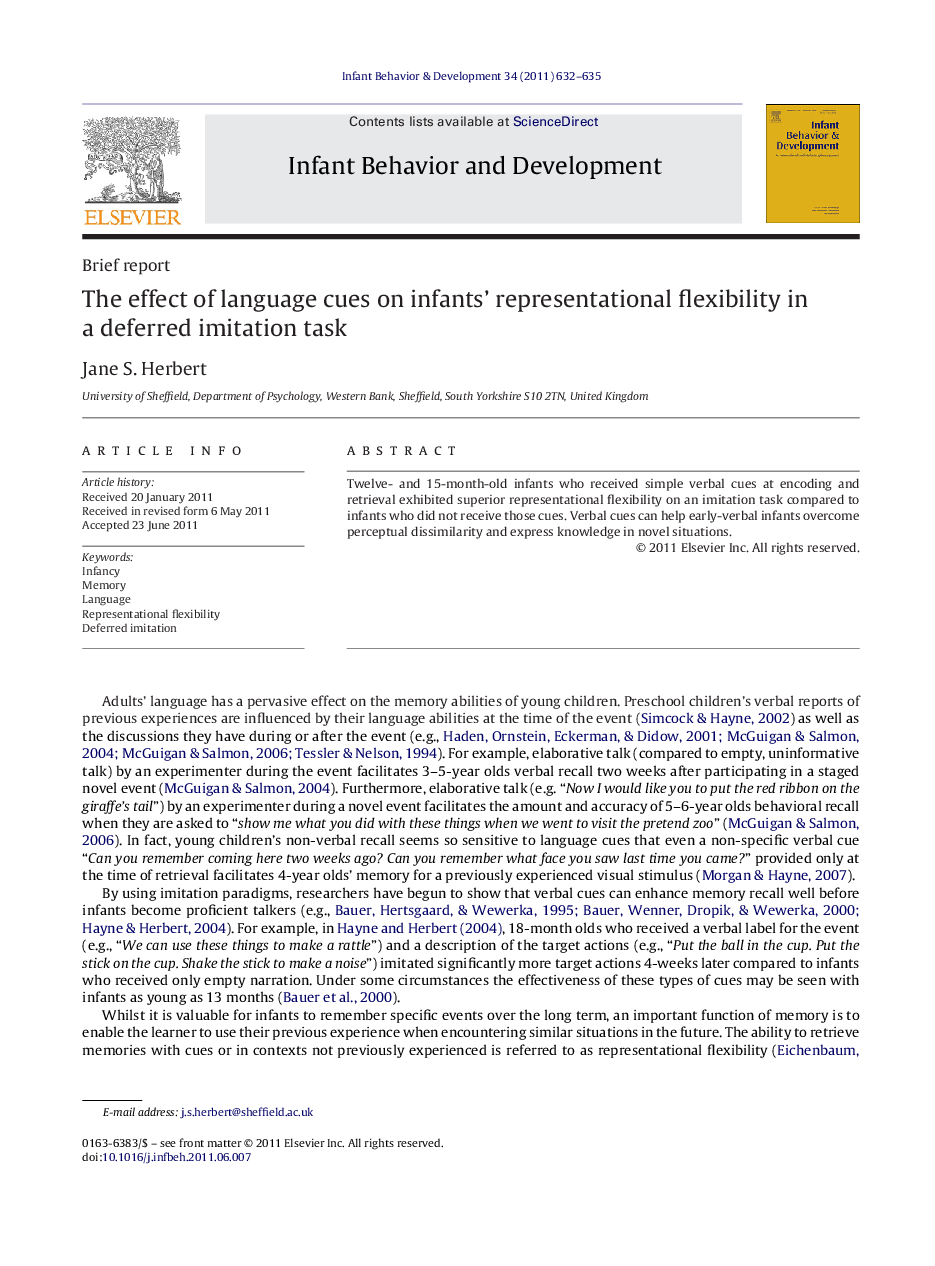| Article ID | Journal | Published Year | Pages | File Type |
|---|---|---|---|---|
| 917290 | Infant Behavior and Development | 2011 | 4 Pages |
Abstract
Twelve- and 15-month-old infants who received simple verbal cues at encoding and retrieval exhibited superior representational flexibility on an imitation task compared to infants who did not receive those cues. Verbal cues can help early-verbal infants overcome perceptual dissimilarity and express knowledge in novel situations.
► Adults’ language has a pervasive effect on young children's memory. ► We examine whether verbal cues improve the flexibility of infant memory. ► Verbal cues improved memory performance at both 12- and 15-months. ► Language cues may be special retrieval cues, or simply highly salient for infants.
Related Topics
Life Sciences
Neuroscience
Behavioral Neuroscience
Authors
Jane S. Herbert,
